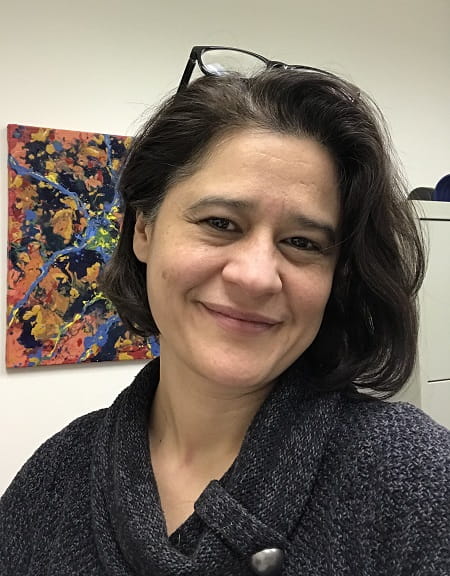|
|
Laura Villasana, Ph.D.Assistant Scientist
|
|
Short Bio:Dr. Villasana received her BS in Biology from the University of Houston and her Ph.D. in Behavioral Neuroscience from Oregon Health & Science University (OHSU) where she formed an interest in brain injury and recovery while studying the effects of cranial irradiation on cognitive function. During her post-doctoral training at the Vollum Institue and the Department of Anesthesiology & Perioperative Medicine (APOM) at OHSU, she expanded on her developing interest in neurogenesis. With support from an NRSA she and her mentors confirmed that the new neurons generated in response to TBI functionally integrate within the hippocampus and discovered that post-traumatic neurogenesis is modulated by clinically relevant sedatives. She then accepted an Assistant Professorship within the APOM department at OHSU where she established a research program to better understand the functional significance of new neurons on memory recovery after TBI. During this time she also accepted a position as the Director of the Behavioral Core where she formed collaborations with other scientists to examine recovery following various forms of brain injury. Dr. Villasana joined LRI in 2020 where she continues to advance her research in determining how the generation of new neurons after injury can be fostered to help improve cognitive recovery. |
Publication Highlights:Diazepam inhibits post-traumatic neurogenesis and blocks aberrant dendritic development. Ketamine alters hippocampal cell proliferation and improves learning in mice after traumatic brain injury. Functional integration of adult-born neurons after traumatic brain injury. Neurologic impairment following experimental closed head injury predicts post-traumatic neurogenesis. |
|
Research Interests:
|
||
Research Focus:
One of the main focuses of my research is to determine what type of contribution new neurons born after traumatic brain injury (TBI) make to their network- that is, whether they help or hinder information processing within the hippocampus, a brain region critical for memory. Because new neurons in the adult hippocampus are important for certain types of memory, it is believed that increases in neurogenesis in response to TBI represents an adaptive mechanism contributing to hippocampal recovery. However, the neurons born after TBI are not the same as those born in a non-injured brain; they migrate to regions not normally observed in a non-injured brain and have abnormal dendrites. My lab uses genetic, pharmacologic and behavioral approaches in mice to determine whether increases in neurogenesis after TBI helps or hinders hippocampal function. |
||
MyHealth
MyHealth
MyHealth
Manage your account, request prescriptions, set up appointments & more.
Don't have an account
CREATE AN ACCOUNT >


